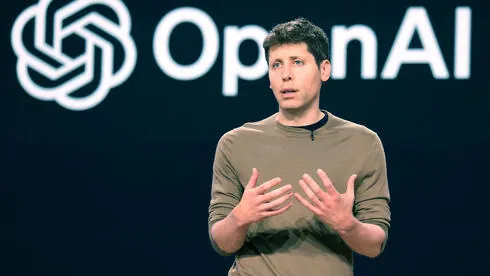
Could OpenAI's New Browser Spell Trouble for Google?
2025-07-11
Author: Yan
OpenAI's Bold Move to Revolutionize Browsing
OpenAI, the pioneer behind ChatGPT, is set to shake up the digital landscape with its latest venture: a full-fledged AI-powered web browser. This ambitious project isn't merely an experiment; it poses a genuine threat to Google's Chrome, which has dominated the market for over a decade.
A Game Changer for User Interaction
Scheduled for release in just a few weeks, OpenAI's browser aims to transform the way users engage with the web. Gone are the days of mindlessly clicking through search results. Instead, users can expect to navigate the internet with conversational queries and intelligent agents that perform tasks seamlessly—anything from filling out forms to scheduling appointments.
The Data Goldmine
But this evolution isn't solely about enhancing user experience; it's also about harnessing data. With millions of users already interacting with ChatGPT weekly, OpenAI stands to gain invaluable behavioral data, a key asset that has long been integral to Google's advertising empire. By utilizing an AI framework for browsing, OpenAI can gather insights directly from user interactions, bypassing the traditional search box altogether.
OpenAI's Browser vs. Google Chrome
In the grand tech showdown, OpenAI isn't new to making waves. After the viral success of ChatGPT in late 2022, OpenAI acquired an AI hardware startup for $6.5 billion, signaling its intent to play seriously in the tech arena. Now, it's setting its sights on one of Big Tech's last strongholds: the web browser. Currently, Chrome boasts over 3 billion users and controls more than two-thirds of the global market share. It’s the gateway to Google Search and the collection point for browsing data that fuels Alphabet's multi-billion dollar ad revenue.
Building from Scratch
OpenAI's browser will be based on Chromium, the same engine that drives Chrome and other competitors, but the company isn't just taking a backseat. By recruiting key players from Google's original Chrome team, OpenAI aims to take the reins and create a browser that prioritizes user control and data privacy.
AI-Native Browsing: The Next Big Thing
The new browser is more than just a tool for viewing content; it will integrate AI agents designed to simplify online tasks. For instance, imagine an automated assistant that can fill in forms, navigate complex sites, and provide real-time content summaries. This shift places the browser not just as a window to the web, but as an active participant in the user experience.
The Rise of AI Browsers
OpenAI isn't alone in this endeavor. Other companies are also investing in AI-driven browsing. For example, startup Perplexity has launched its own browser, Comet, featuring AI capabilities such as managing tabs and summarizing content. CEO Aravind Srinivas believes this development represents a crucial move in the competition against Google.
An Evolving War on the Web
What we are witnessing now isn't just a browser battle; it's a pivotal shift in how we interact with technology. Historically, we've seen rivalries like Microsoft versus Netscape and Chrome versus Firefox, but today's browser wars carry even greater stakes. It's not just about access to the internet anymore; it’s about integrating AI into the very fabric of user experience.
OpenAI's Upward Climb
Despite the challenges ahead, OpenAI boasts a growing user base, with 3 million businesses using ChatGPT and a forward-thinking vision that merges generative AI with web functionality. As users increasingly seek an internet that actively works for them—rather than merely serving up links—OpenAI's browser may soon redefine our online experience.





 Brasil (PT)
Brasil (PT)
 Canada (EN)
Canada (EN)
 Chile (ES)
Chile (ES)
 Česko (CS)
Česko (CS)
 대한민국 (KO)
대한민국 (KO)
 España (ES)
España (ES)
 France (FR)
France (FR)
 Hong Kong (EN)
Hong Kong (EN)
 Italia (IT)
Italia (IT)
 日本 (JA)
日本 (JA)
 Magyarország (HU)
Magyarország (HU)
 Norge (NO)
Norge (NO)
 Polska (PL)
Polska (PL)
 Schweiz (DE)
Schweiz (DE)
 Singapore (EN)
Singapore (EN)
 Sverige (SV)
Sverige (SV)
 Suomi (FI)
Suomi (FI)
 Türkiye (TR)
Türkiye (TR)
 الإمارات العربية المتحدة (AR)
الإمارات العربية المتحدة (AR)